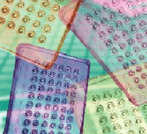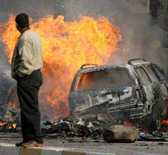
Daisy Manufacturing just agreed to pay $20,400 to settle charges that it exported “rifle scopes” without a license. The Bureau of Industry and Security charged that the “rifle scopes” were classified under ECCN 0A987.
Most guys, particularly guys my age, are quite familiar with Daisy Manufacturing. Hell, anyone who has ever seen A Christmas Story is probably familiar with Daisy. The company makes BB guns and air rifles — like the Official Red Ryder Carbine-Action Two-Hundred-Shot Range Model Air Rifle featured in the film.
And export folks of any age are probably familiar with ECCN 0A987 which controls:
Optical sighting devices for firearms (including shotguns controlled by 0A984); and parts, n.e.s.
That’s right — optical sighting devices for firearms. Now the Export Administration Regulations don’t bother to define firearms, but it would seem reasonable to look at the definition of firearm in the Federal Gun Control Act of 1968. A firearm is defined in that act, at 18 U.S.C. §§921(a)(3) and (4), to cover only weapons which “expel a projectile by the action of an explosive” or, if expelling the projectile by other means, have a rifle bore of greater than one-half inch in diameter. The Daisy air rifles do not meet either criterion.
And the scopes manufactured by Daisy, like this one, all appear to be made for Daisy’s air rifles and, therefore, not properly classified under ECCN 0A987 as claimed by BIS. The BIS charging and settlement documents don’t provide sufficient detail as to the types or model numbers of scopes being exported. Once again, those documents refer to a schedule of violations which is missing from the documents posted on the BIS website. So there remains the possibility, albeit unlikely, that Daisy was exporting scopes for other rifles that could properly be defined as firearms.
All that notwithstanding, does anyone else feel that a scope on a BB gun is, well, cheating? What next? Laser designators?

 Posted by
Posted by  Category:
Category: 

 We have
We have  Invitrogen and the Bureau of Industry and Security (“BIS”) recently signed a
Invitrogen and the Bureau of Industry and Security (“BIS”) recently signed a  Bethesda-based USAID contractor
Bethesda-based USAID contractor 

